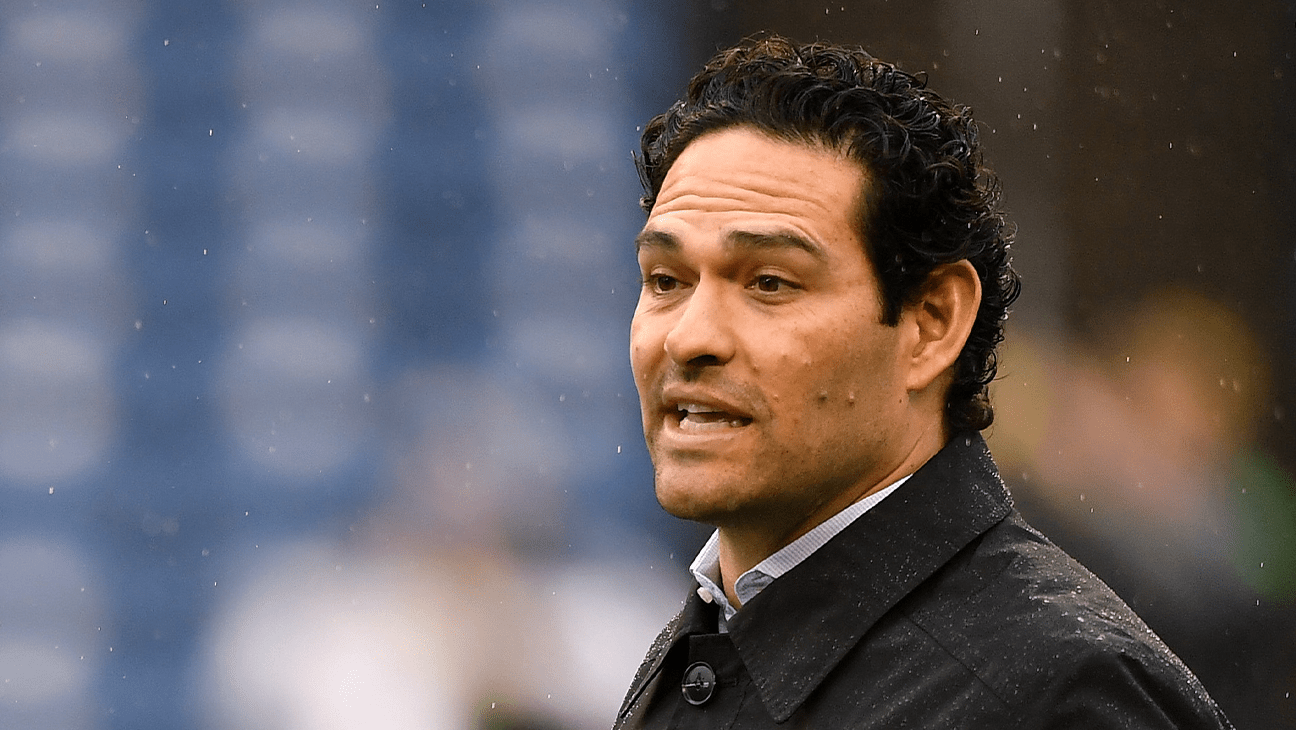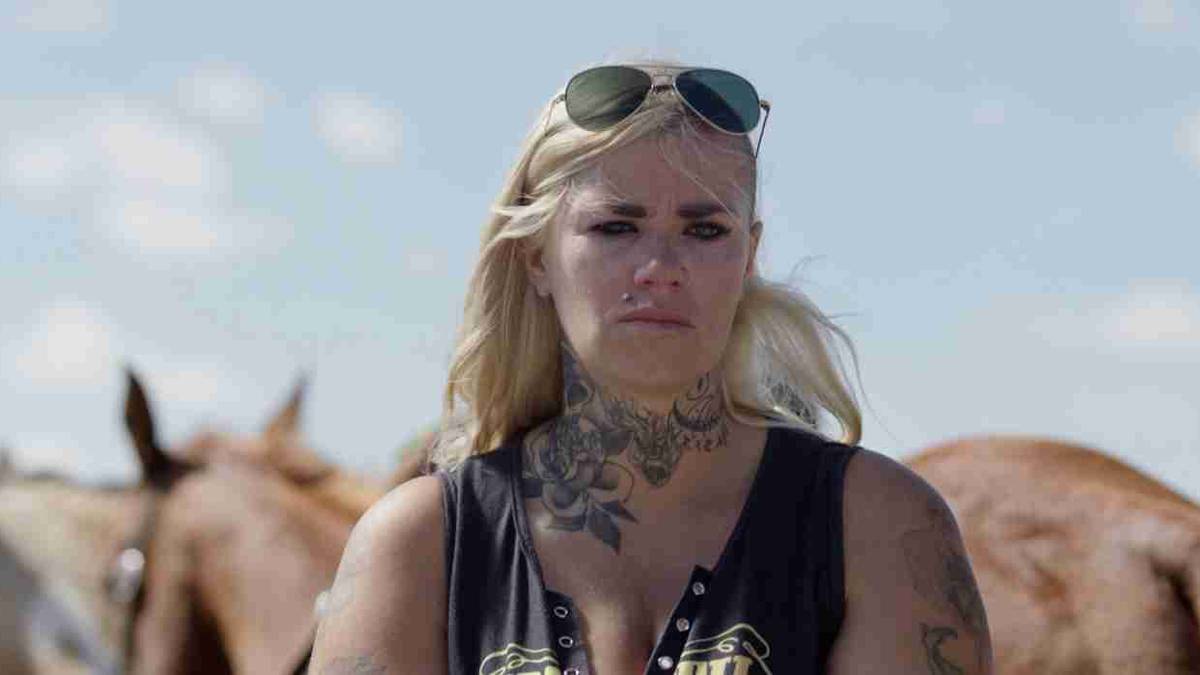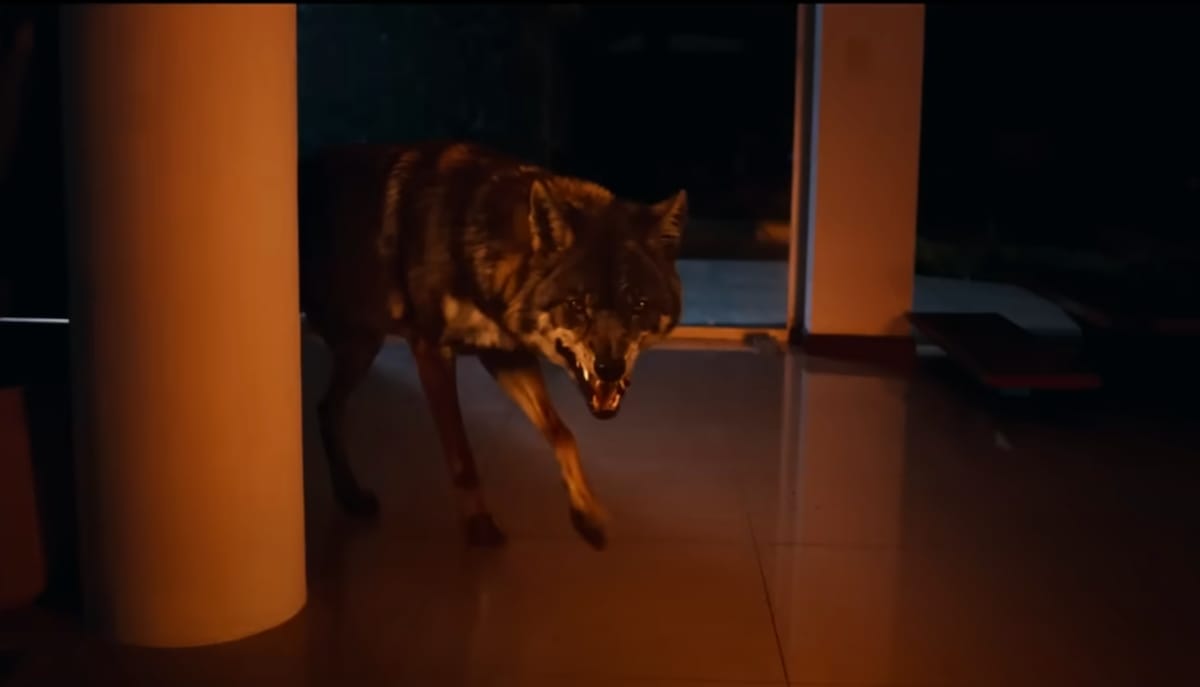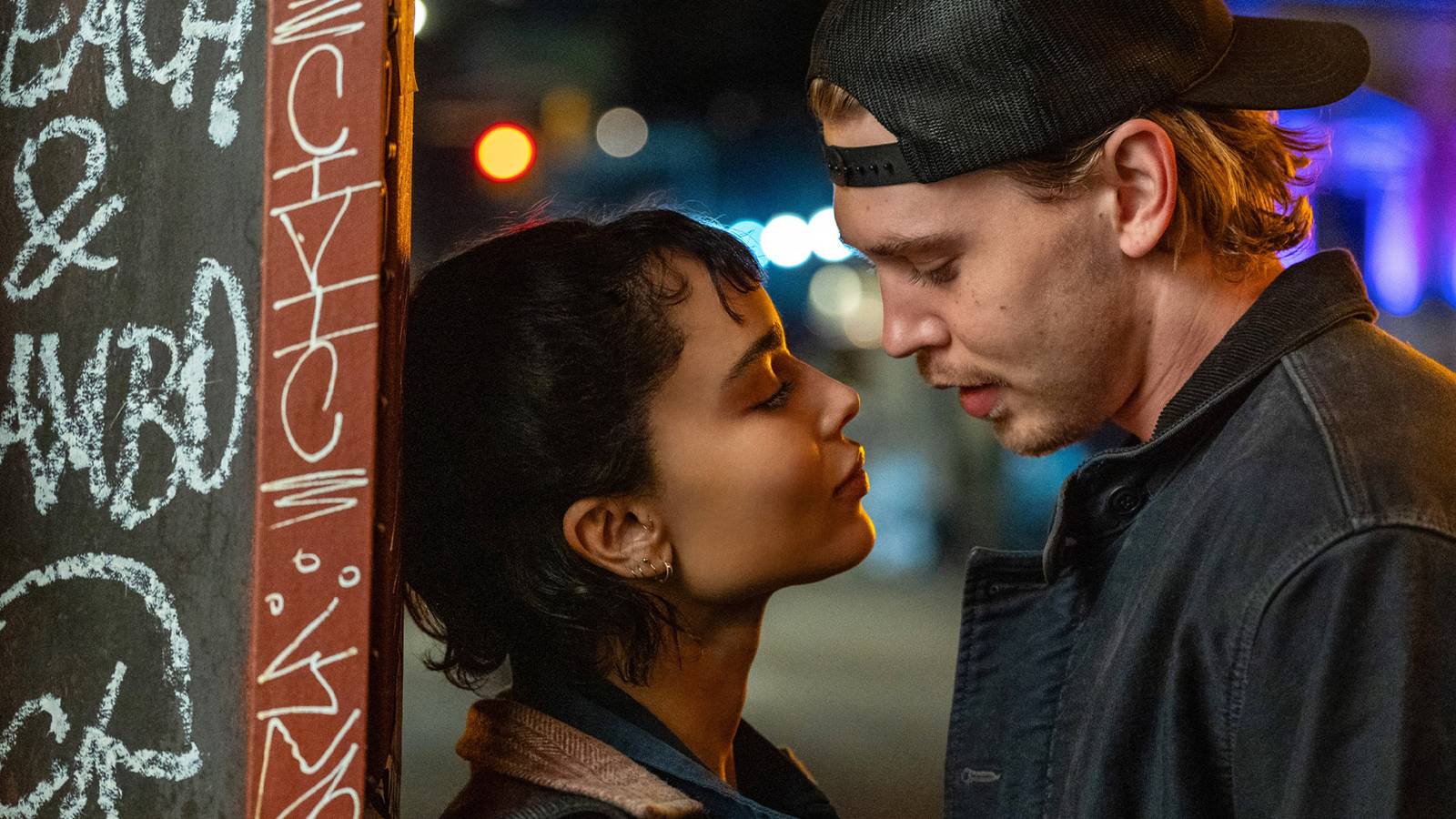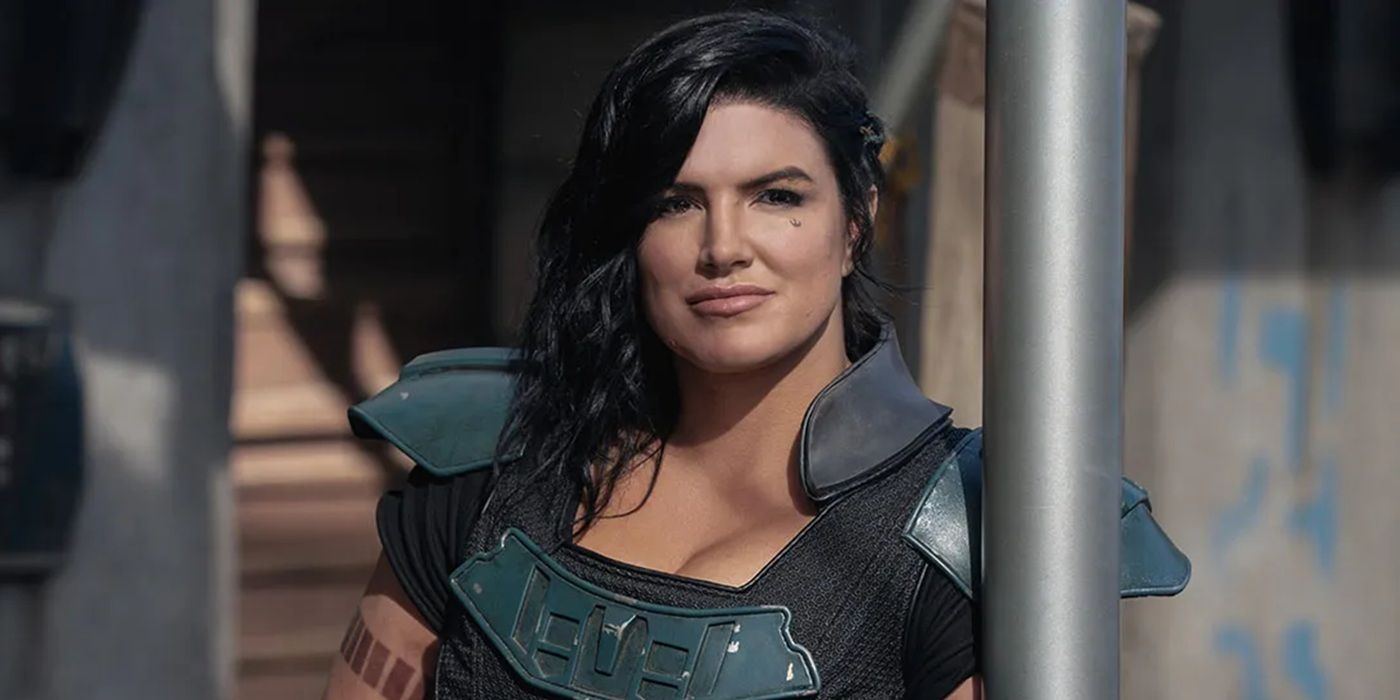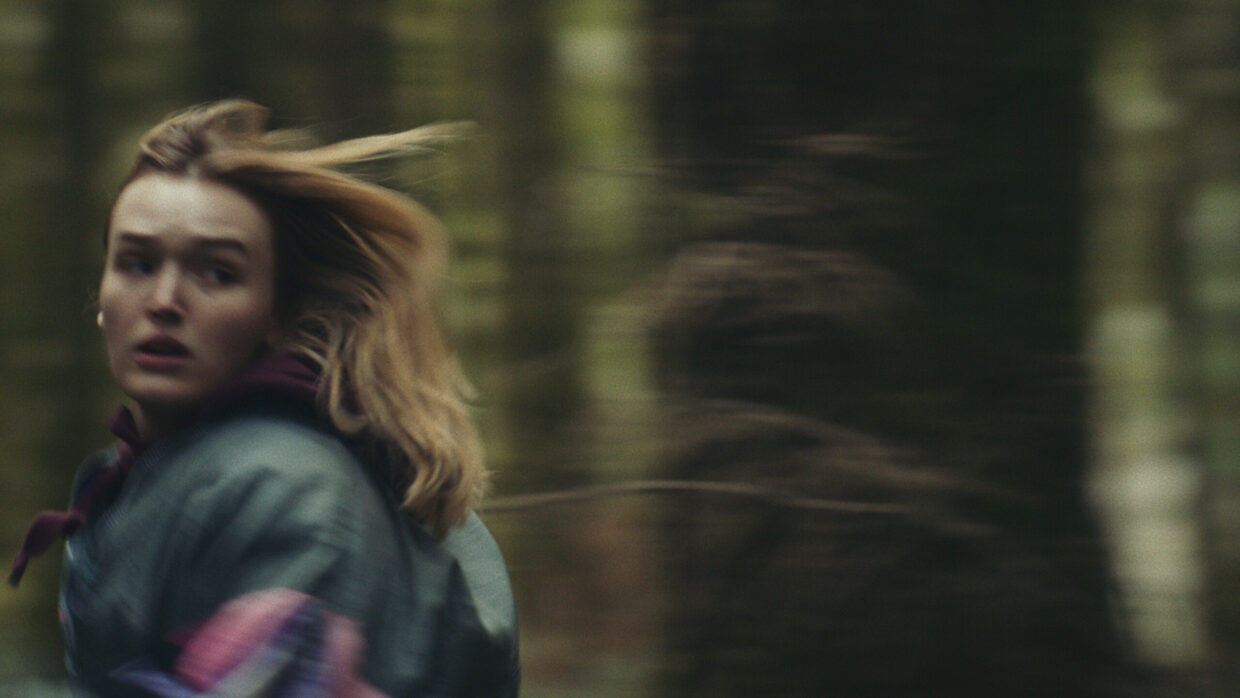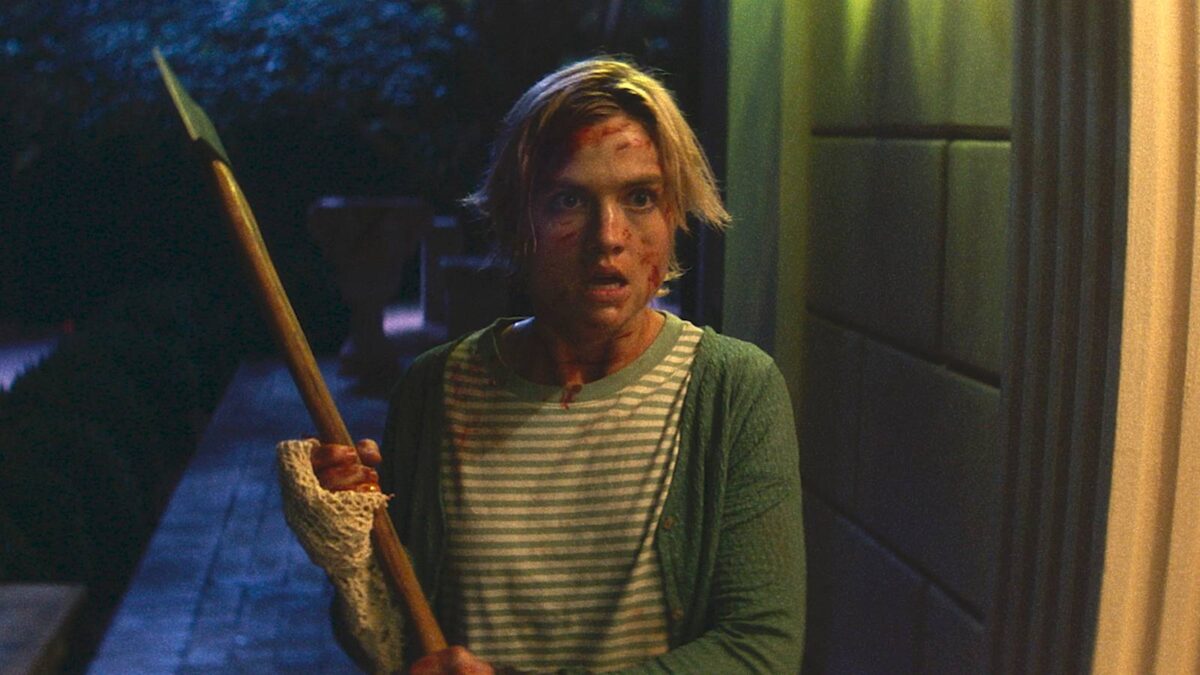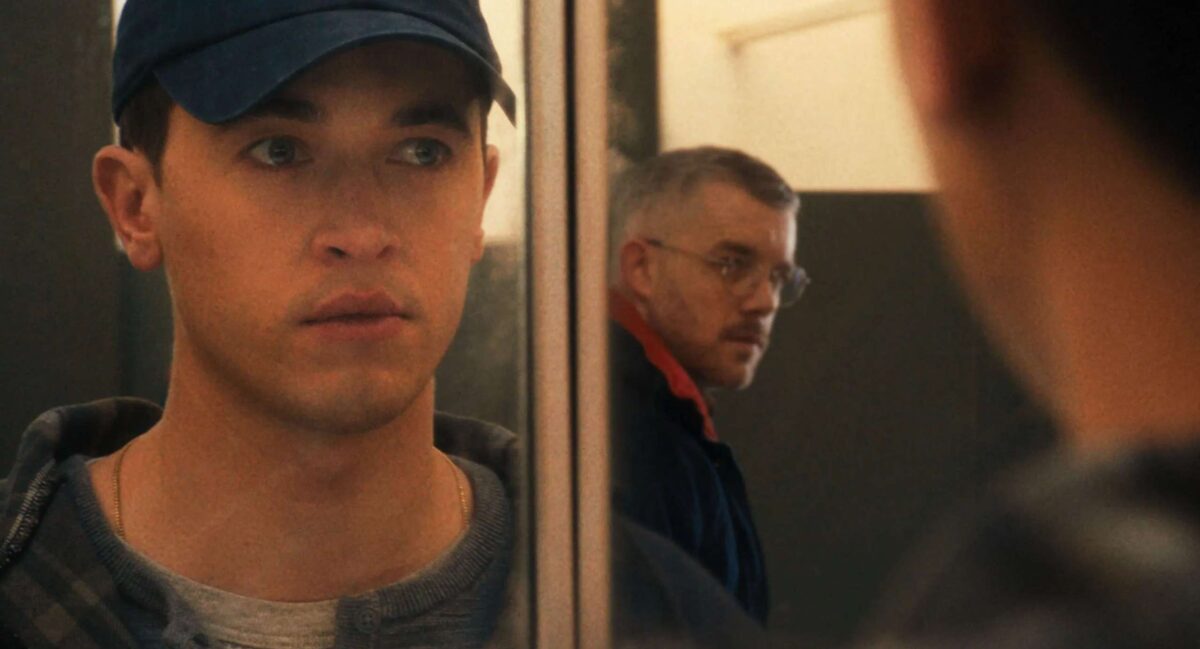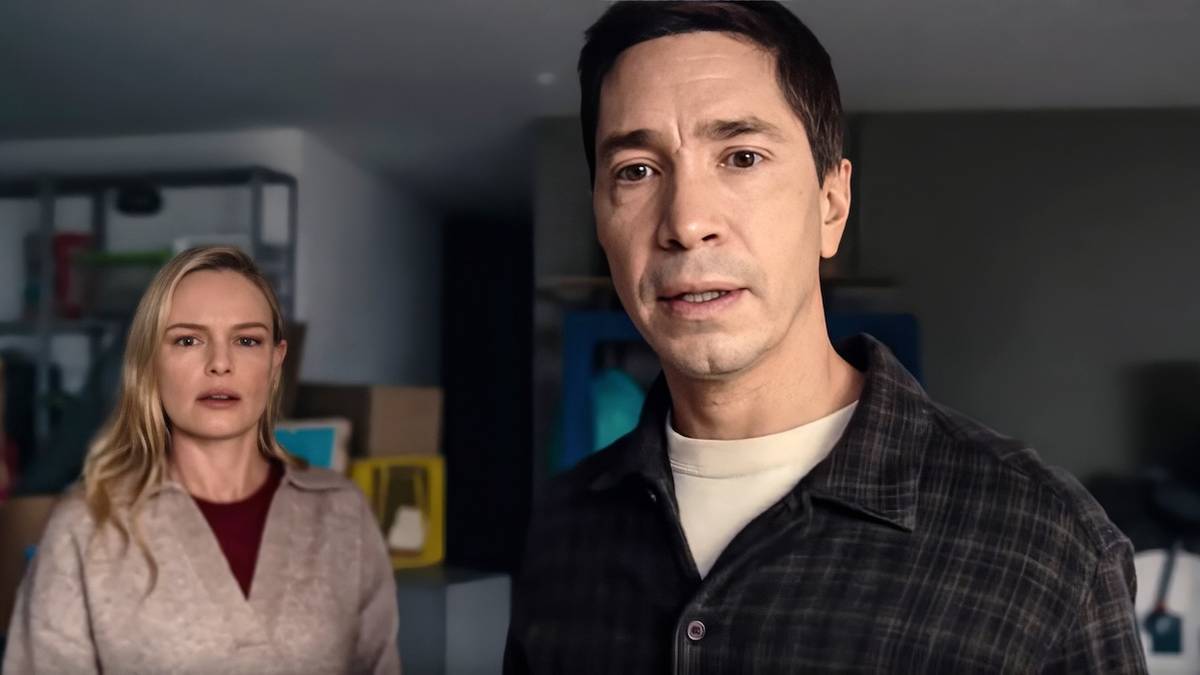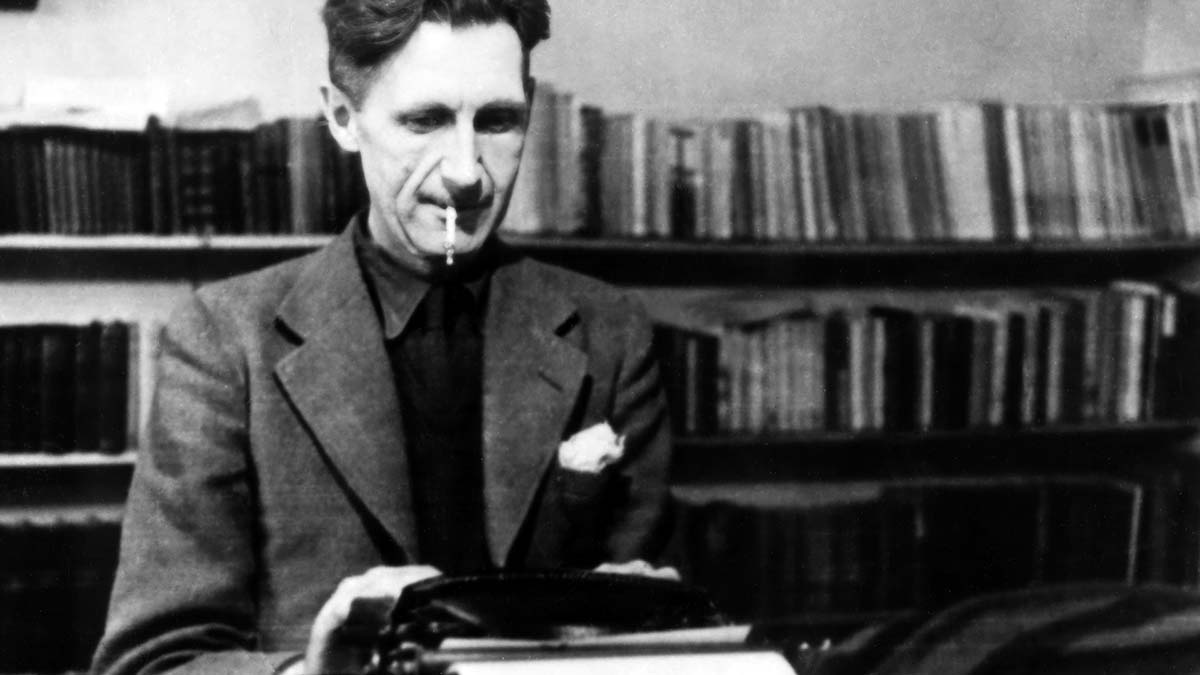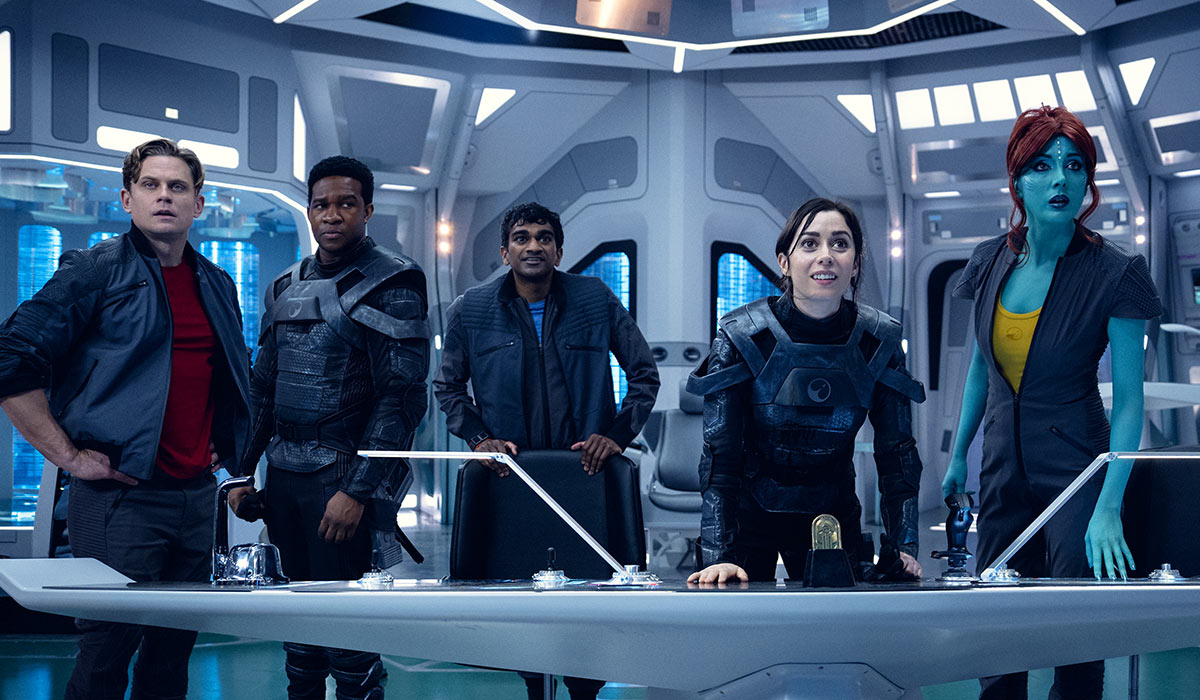
Charlie Booker Says The Door “Is Open” For Another ‘USS Callister’ Sequel
Jun 26, 2025
As a singular franchise, “Black Mirror” has a dedicated fan base. But the anthology series, which returned for a seventh season this Spring, has also spurred a passionate following for one of its singular chapters, “USS Callister,” which dropped in 2017. Using a “Star Trek”-like set-up, the episode saw a computer programmer and startup founder (Jesse Plemons) demonstrate the depths of human cruelty when dealing with AI “copies” of his co-workers. Viewers have clamored for a sequel for years, and with “USS Callister: Into Infinity,” they got it, but could writer and creator Charlie Booker and director Toby Haynes stick the landing? Well, yes.
Read more: The Greatest Television Programs of the 21st Century #100-76
Read more: The Greatest Television Programs of the 21st Century #75-51
The second “Callister” chapter is currently the highest rated episode of “Black Mirror” season 7 on IMDB with a not insignificant 19,000 votes at publication. And, yes, Booker does sleep better at night knowing the fans are satisfied.
“Definitely,” Booker says. “And 100%, that was something that we were all super aware of. Toby, the director, was aware of it. We didn’t want to f**k it up basically. We didn’t want to s**t on the legacy of what we’d already done. We wanted to make sure that it felt earned. That it sort of delivered something different from the original.”
As to whether a third chapter or another spin-off could occur, Booker prefaces his answer with the issue that contributed to production ditching a separate limited series for “Into Infinity,” scheduling around this in-demand cast isn’t easy. That being said, the window is open for a return as he notes, “I would always find a window because I love the characters, and I love the cast.”
Throughout our in-depth conversation, Booker ponders whether he’ll ever sit in the director’s chair, reveals a “Blazzing Saddles” moment while in the production of multiple episodes, praises Paul Giamatti’s work in the episode “Eulogy,” explained the inspiration for “Hotel Reverie,” reveals whether more “Black Mirror” episodes are in the works, and much, much, much more.
This interview has been edited for length and clarity.
_____
The Playlist: I don’t know how often you’ve been asked this, but why haven’t you directed an episode yet?
Charlie Booker: You know why? I’m quite often asked, “Do you have any ambition to direct?” And I don’t know that I did. I’ve thought about it because I can be quite a control freak. My favorite bit is the edit of the whole process. I think it’s the early mornings, so planning in the early mornings, I think that would be what would worry me. And iI think it would kill me if I were trying to direct even one in the middle of that [making six episodes]. I think because there are so many different moving parts. It’s doing like six sort of separate little mini features. So yeah, I don’t know. Maybe it’s an ambition I should have for the future.
I mean, many writers don’t want to, but you have such a vision. I assume that when you write these scripts, you often have ideas in your head of what a scene should look like.
Oh, yes. I feel with the writing is to get to a point where once I know what the final scene is, almost the final image is, then I’m sort of walking towards that and I’m just kind of describing what I’m seeing, if you see what I mean. So yeah, I guess that’s how I think about it. That’s when you get into a kind of flow state. You’re not thinking, you’re sort of not physically present in some way, and you are just sort of describing what you are seeing. I’m thinking about the edit, and one of my first jobs I was a cartoonist. I used to do comic strips, and I wasn’t a great cartoonist, but my brain works that way anyway. So I probably should, but I say it’s the mornings. It looks so tough. It also looks like a stress dream about being sort of having to have an answer or feel like you have an answer for any question that somebody could throw at you on the day. So yeah, it looks very stressful.
I’m impressed that you get away with not having to answer everyone’s questions as the showrunner every day.
Oh, don’t get me wrong. There are a lot of questions. They’re always creative questions. And also, you’re kind of running around when you’re in the middle of the season, you’re dealing with sort of six episodes that are in some different stage. So yeah, I don’t know, maybe I should, though. Again, I’m very intensely jealous when I see things by writer-directors. I do get sort of intensely jealous.
Maybe I put an idea in the back of your head for the next season. When you are talking to Netflix before every season, do they prefer six episodes? Do you prefer just six?
I think we discovered historically that six is the upper number that we can reasonably do. This season, because of the “USS Callister” sequel, we had already been developing that for a while, and so we were debating whether to do that. There was a point where we were developing that as a miniseries or limited series of its own thing. And so we had already quite a lot of, we’d broken the back of most of that work, and then we were of like, “Well, let’s do that as a feature.” So, we felt we could do that. And the shooting it overlapped slightly with “Hotel Reverie” actually, which is the other sort of near feature-length one this season. So, we felt we could do that because five or six is kind of the upper limit of what seems psychologically possible, I think. Because each one is pretty independent, having a bit of time in between, it means that it takes us quite a long time to make. And if we did more than that, I wouldn’t be able to be across them at all. Yeah, it would just take a long, even longer in between seasons.
How close did the sequel to “USS Callister” come to being a limited series?
It’s tricky. It’s hard to say because it was one of these things where fate kept throwing obstacles in our pathway because we were talking about it early on. We’d started doing some work on it, and there was the pandemic, then there was the writer’s strike. So, we had done quite a bit of work working out various ways that we could go. We’ve done quite a bit of work on it, and then we sort of figured the other thing is getting everyone’s schedules aligned, which was increasingly difficult. So we took the decision to turn it into a feature-length episode, and I think that was the right decision. And what it did mean was there was this sort of massive mental Rolodex, there were a billion ideas that had been thought of for the mini series. And so, sometimes while going through a draft, I was like, “Hang on, is this, wait a minute, which version is this? What’s happening? O.K., so yes, we’re not doing that. We’re doing this.” There were sorts of alternate realities for it lodged in my head.
At the end of that new chapter, do you feel like it’s meant to close the story, or do you feel like a window is open for those characters stuck in Nanette‘s head to reappear?
I would always find a window because I love the characters, and I love the cast. It is interesting because the first one ends with them flying through a wormhole and onto the game server. And at the time, we were like, “Oh, this feels like we’re setting ourselves up for a sequel.” This time around, the ending changed because Toby [Haynes] and Christian were both — there as a slightly more of a sort of “Wizard of Oz” ending before a little bit more “Goodbye Scarecrow, goodbye Cowardly Lion,” a little bit like goodbye and I must now leave you. And both Toby and Christine felt it was a little too twee, and they were right. And I think Toby pitched the idea of the “Herman’s Head” slash “Inside Out” sort of ending. And I was initially resistant because I was sort of overthinking it and going, “Well, we did something a bit like that in ‘Black Museum’ last time.” And then I went away and thought about it, thought, “Oh no, that’s definitely the much more of a “Black Mirror” ending.” And again, in the episode as a whole, we are riffing on so many things we’ve done throughout other sorts of “Black Mirror” stories, and the story is complete, but it does leave the door open, potentially, if there’s the appetite to do it. And if we wanted to, and we could get everyone’s schedules aligned, never say never.
Just about that episode. The first one was such a fan favorite, people were so waiting for it. I don’t know if you go on IMDB or whatever, but the sequel is the highest-rated episode of this season. Does that mean anything to you? Do you sleep better at night?
It does, definitely. And 100%, that was something that we were all super aware of. Toby, the director, was aware of it. We didn’t want to f**k it up basically. We didn’t want to s**t on the legacy of what we’d already done. We wanted to make sure that it felt earned. That it sort of delivered something different from the original. And I think it does do that on all those counts. This is a weird show to do generally because, as the show has gone along, we do so many different types of episodes now. The first two seasons were like nasty punk singles, and everyone was a downer and nasty. And then the first one I wrote for Netflix was “San Junipero.” And it was deliberate. It’s a bit like being in a band and thinking, “Well, no, I’m going to write a love ballad. I’m going to write something different.” If it’s always the same, it’s going to drive me crazy. But now we’ve got sort of fans who like the love ballads and fans who like the punk singles. And then we’ve also got weird novelty records. We’ll do big stadium rock episodes. It’s a weird show because almost all our episodes are divisive to some element of the fandom. It’s quite strange. So again, I knew that there would be some people who were like, “Ah, I didn’t like the first one. I’m not going to like this.” But generally speaking, the way that it’s gone down has been really gratifying. I think people have, yeah, we didn’t f**k it up. I don’t think we f**ked it up.
Do you dive in and try to look online and see what the reaction is every season, or is that something that you’re just like, “No, just have someone tell me”?
Oh, I’m guilty of doing it. I’ve done that. I’ve looked. It’s weird. I was thinking about this the other day. I used to be a TV critic in the UK. I used to write for The Guardian. I would write pretty scathing things. I think I was firm, but fair. But I often I was pretty no holds barred in many ways, which means annoyingly, I can’t really complain if anyone really slates the show or the episode or me. I’ve kind of got my hands tied by my back by having done it myself. But you wouldn’t be human if you didn’t. Look, I was talking to a writer the other day, who never looks, never reads anything, never. And I thought, “How do you do that?” Because it’s a bit like having a magic seashell that you could pick up and hear what people are saying about you. Who can resist that? But the human nature is you could ring 99 positive bits of praise, and then one stinker is going to throw your mood for the next five minutes. So I’m aware that it’s a sort of losing game.
Have you had anyone work on the show that maybe you were hoping they didn’t remember a review you potentially wrote about them?
Well, there’s probably one or two examples of people where I’ve said something awkward about something. That used to be more of a problem, that it would be that I’d be in the UK. I’d sort of literally sort of bump into somebody, and I’d maybe been rude about their work. The way it would always work is that the equation seemed to be that if you had ever been slightly unkind about, and again, I think I was fair, I wasn’t personal about people, but if you’d said something unkind about somebody’s work and then you met them, they’re always really nice. And then you think, “Who’s the asshole in this equation?” And suddenly you feel like a d**k. So that was often my experience. Also, the more I moved into making shows, I had to step back from writing columns because you can’t do both. I obviously had a different perspective on shows in general, that you no longer have a viewer’s perspective. You are a bit more inside baseball. You’re like, “O.K., well these people were really trying, and maybe something got compromised, or maybe there was a note they had to enact that they didn’t want to, or an actor got sick, or the set burnt down.” You just don’t know.
And I think it was easy for me to otherwise assume that anything you watched that everyone was involved in, it was patting themselves on the back and going, “This was magnificent.” And that’s not always the case.
Do you have a list of episode ideas you reference when writing the show?
Yes, I do. Frustratingly, what I have is a collection of sometimes there’s sort of scraps of things I’ve written down, and I’m not always good at writing things down. Weirdly, today I was having to go through an old computer and I found the original scraps of what became “San Junipero.” I was going up the stairs and I thought, what’s that? And I opened it up, and I realized it’s the “Playtest.” It’s describing part of the episodes that became “Playtest” in season three. And so I’ll have scraps of ideas and sometimes, quite often in fact, what happens is I’ve got a sort of capsule idea for an episode and then I can’t work something out and then I start thinking about something else and then two ideas belong together.
Publisher: Source link
Erotic Horror Is Long On Innuendo, Short On Climax As It Fails To Deliver On A Promising Premise
Picture this: you splurge on a stunning estate on AirBnB for a romantic weekend with your long-time partner, only for another couple to show up having done the same, on a different app. With the hosts not responding to messages…
Oct 8, 2025
Desire, Duty, and Deception Collide
Carmen Emmi’s Plainclothes is an evocative, bruising romantic thriller that takes place in the shadowy underbelly of 1990s New York, where personal identity collides with institutional control. More than just a story about police work, the film is a taut…
Oct 8, 2025
Real-Life Couple Justin Long and Kate Bosworth Have Tons of Fun in a Creature Feature That Plays It Too Safe
In 2022, Justin Long and Kate Bosworth teamed up for the horror comedy House of Darkness. A year later, the actors got married and are now parents, so it's fun to see them working together again for another outing in…
Oct 6, 2025
Raoul Peck’s Everything Bagel Documentary Puts Too Much In the Author’s Mouth [TIFF]
Everyone has their own George Orwell and tends to think everyone else gets him wrong. As such, making a sprawling quasi-biographical documentary like “Orwell: 2+2=5” is a brave effort bound to exasperate people across the political spectrum. Even so, Raoul…
Oct 6, 2025
